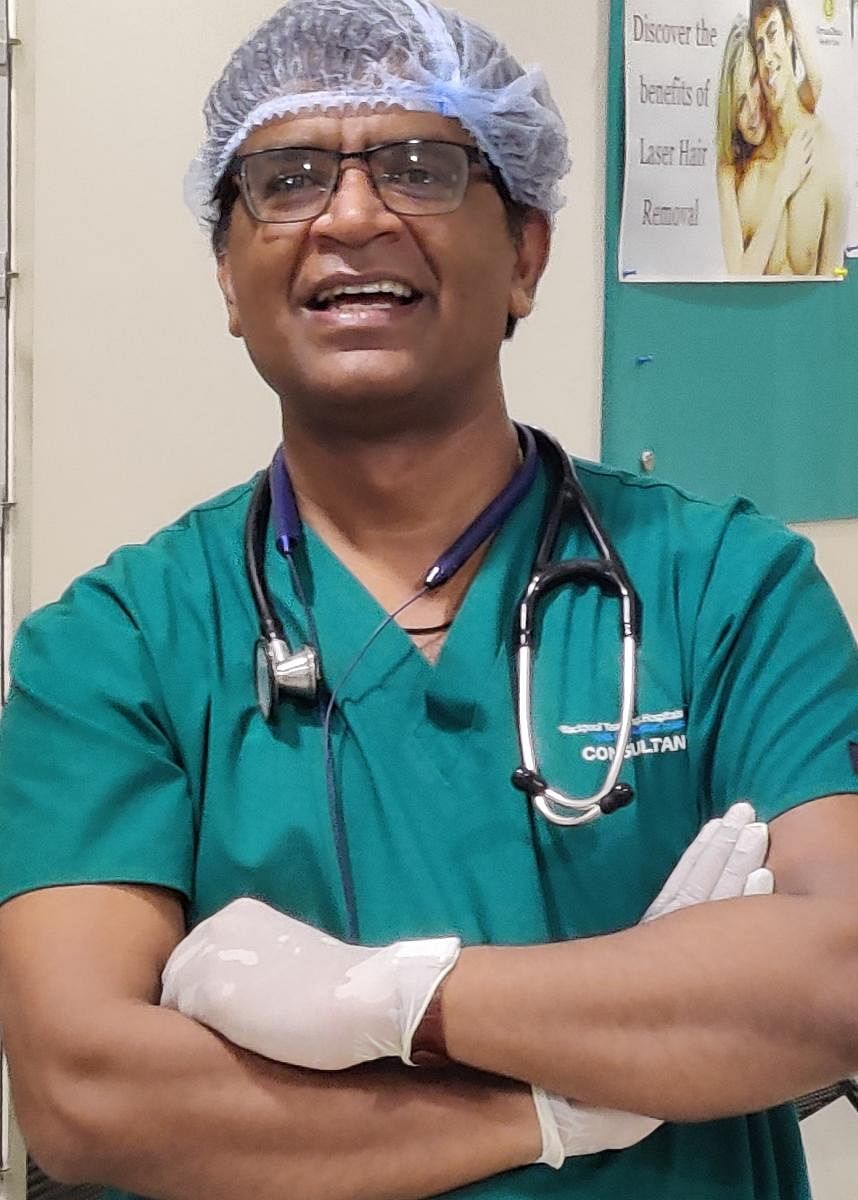
With the pandemic spreading and taking a grim toll, doctors are living under extreme stress, of the kind they had never experienced before.
From fear for self and family to shortage of staff, they are up against many challenges, and are fighting a valiant battle.
To mark Doctor’s Day, Metrolife spoke to doctors across Bengaluru to understand how the pandemic has changed their routine.
‘Long hours with PPE new’
Anxiety is high among doctors, says Dr Ramesh K N, associate professor of medicine, nodal officer for Covid-19, Bowring and Lady Curzon Hospital.
“Many doctors are living in hostels and at the hospital, especially those with elderly parents and young children,” he says.
Adapting to the PPE kit is another worry. “Doctors had earlier worked with it for 30 minutes to an hour, but wearing it for six to 12 hours is a Herculean task,” he says. Many patients expect luxuries at government hospitals, but this is a medical tsunami, he says.
Dr Ramesh, who has worked in the UK and in the private sector, says the government is trying its best. “People need to take precautions and practise hand hygiene,” he says.
Shortage of staff is a concern, but this is a concern even in the UK. “If a doctor in a batch turns positive, another replaces him. The infected person returns after 14 to 28 days, after recovery,” he says.
Big worry if burns patient is Covid-19 positive
Dr Ramesha K T, professor and head of the department, plastic surgery and burns, Victoria Hospital, says the unit gets cases not treated everywhere. “Since the hospital is also a designated Covid-19 hospital, our paramedical workers and staff are worried. The hospital is crowded,” he says.
When suspected Covid-19 patients need to be treated for burns, doctors wear protective suits. Dr Ramesha, awaiting rotation of duty for Covid-19 posting, says it is part of a doctor’s duty to step up when required. “We have been given orientation classes about how to use the PPE kit,” he adds.
‘Battling SARI and coronavirus’
Rajiv Gandhi Institute of Chest Diseases, known to handle severe acute respiratory illnesses (SARI) and influenza-like illnesses (ILI), has attended to a number of Covid-19 cases in the past two weeks.
This was after designated hospitals started running out of beds. Dr Nagaraj C, director, says the hospital is short of staff. “In other hospitals like Victoria Hospital and Bowring and Lady Curzon Hospital, staff work for seven days and take 15 days off. That’s not the scenario in our hospital, where staff work for 15 days and take just three or four days off,” he says.
Separate teams are deployed for SARI, non Covid-19 cases and Covid-19 cases. “The severity of SARI has increased. It could be because most patients are coming in at the last stage and also because of weather changes,” he says.
‘Docs need kit guidelines’
Dr Karthik R, emergency physician, CMH Hospital, Indiranagar, says shortage of PPE kits is a big concern.
“When a staffer is removing the PPE, if he touches an exposed area, he can get infected. Guidelines should be given to doctors and healthcare professionals about using them,” he says.
CMH Hospital has now started taking in Covid-19 cases, if they are given letters from the BBMP and are transferred in an ambulance. “Now the casualty is divided into two parts — general and fever. Cases where symptoms don’t reflect Covid-19 but tests show infection are a worry,” he says.
Reviving patients who come gasping and require CPR can lead to medical staff getting exposed to uncertain infections. Cardiopulmonary resuscitation (CPR) is an emergency procedure that combines chest compressions often with artificial ventilation.
Such cases demand Covid-19 tests to protect relatives and medical staff. “They bring a lot of stress,” he says.
‘Staff turning positive can affect psyche’
Dr Mahesh Kumar, consultant, internal medicine, Narayana Health City, works with the special Covid-19 wing, which has a 20-bed ICU. A new wing is being constructed.
“Challenges include diagnosing and treating patients with Covid-19, educating them against spread, and practising complete quarantine,” he says.
Protecting staff is a big concern. “Despite all protective measures, 1 to 2 per cent of health professionals can get affected. If a staffer turns positive, the psyche of the batch is affected. They are constantly counselled and motivated by team doctors,” he says.
Fear of hospitals
A worry is that regular patients with diabetes, heart problems and hypertension have stopped going to the hospital.
“We have seen cases where sugar and BP levels have increased tremendously due to lack of monitoring and stress. We are trying to maintain contact with most patients through messages and email, guide them about diet, physical activity, stress management and modifications of medicines on a weekly basis,” says Dr Mahesh Kumar of Narayana Health City.